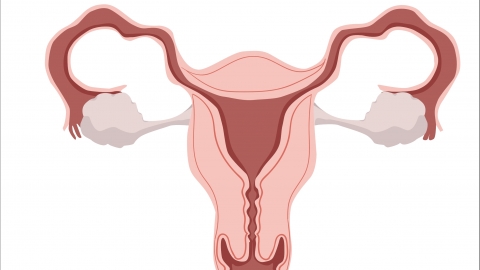What causes fluid accumulation in the rectouterine pouch?
Generally, the main causes of fluid accumulation in the rectouterine pouch include physiological pelvic effusion, ovulation-related effusion, pelvic inflammatory disease, endometriosis, and hydrosalpinx. If discomfort occurs, it is recommended to seek timely medical treatment at a regular hospital. Detailed explanations are as follows:
1. Physiological Pelvic Effusion
Women normally have a small amount of fluid in the abdominal cavity, which serves as lubrication for internal organs. Some of this fluid may accumulate in the rectouterine pouch, forming an effusion. Usually, there are no obvious symptoms. No special treatment is required in daily life; maintaining regular作息, avoiding excessive fatigue, and engaging in moderate exercise to promote pelvic blood circulation can help fluid absorption.

2. Ovulation-Related Effusion
During ovulation, the follicle ruptures and follicular fluid flows into the pelvic cavity, accumulating in the rectouterine pouch to form an effusion. This is a normal physiological phenomenon that can be naturally absorbed after ovulation. Personal hygiene should be maintained during this period, strenuous exercise avoided, and a light diet maintained to reduce pelvic irritation and assist in the natural resolution of the effusion.
3. Pelvic Inflammatory Disease
Infection of the pelvic cavity by pathogens causes inflammation, which leads to congestion and edema of pelvic tissues and the secretion of inflammatory fluid that accumulates in the rectouterine pouch. Under a doctor's guidance, medications such as metronidazole tablets, levofloxacin hydrochloride capsules, and gynecological Qianjin tablets may be taken to control infection, reduce inflammatory secretions, and alleviate symptoms of fluid accumulation.
4. Endometriosis
Endometrial tissue displaced to the pelvic cavity may bleed and cause inflammatory reactions, producing fluid that accumulates in the rectouterine pouch. Mild cases can be treated under a doctor's guidance with medications such as dydrogesterone tablets, gestrinone capsules, and ethinylestradiol cyproterone acetate tablets to regulate hormones, inhibit lesion activity, and reduce fluid accumulation. Severe cases may require laparoscopic excision of endometrial lesions to decrease fluid production.
5. Hydrosalpinx
Inflammation of the fallopian tubes causes blockage of the lumen, preventing the discharge of secretions and leading to fluid accumulation. Some of this fluid may flow into the rectouterine pouch. Mild cases can be treated with anti-inflammatory medications such as cefixime dispersible tablets, ornidazole dispersible tablets, and Baise capsules under a doctor's guidance. Severe cases require laparoscopic salpingostomy or salpingectomy to eliminate the source of fluid accumulation and improve the condition.
In daily life, maintaining external genital hygiene and avoiding unclean sexual activity are important. Eating a balanced diet and maintaining regular作息 can enhance physical immunity. Avoid prolonged sitting and engage in appropriate physical activity to promote pelvic blood circulation. Regular gynecological examinations should be conducted to detect and treat pelvic diseases promptly, maintaining reproductive system health.




